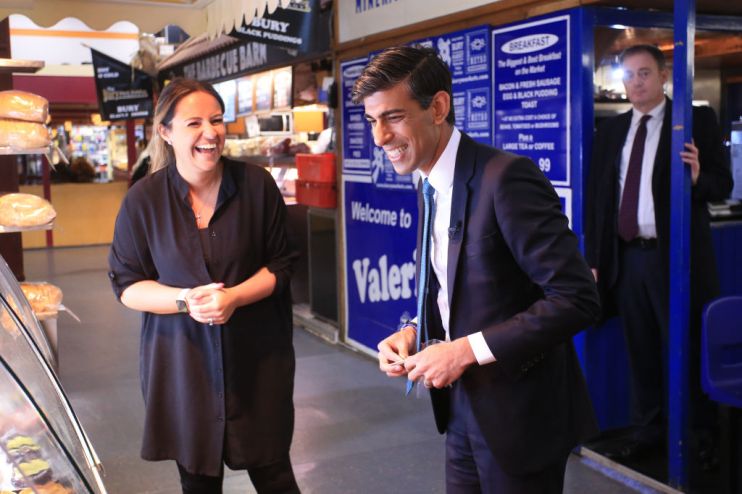Sunak has enough room to scrap national insurance hike, according to top City economists

Chancellor Rishi Sunak has enough room to scrap the looming national insurance hike to ease the heavy cost of living burden weighing Brits down, according to leading City economists.
Bumper tax revenues driven by the UK economy performing much better than forecast has provided the Chancellor with a big enough tax windfall to cancel the planned 1.25 percentage point national insurance rise.
That’s according to top City consultancy Capital Economics.
Despite a swelling government interest bill bulged by inflation taking off to historic highs, “our forecasts imply the Chancellor would have enough fiscal room to cancel the scheduled increase in NIC taxes on 1 April to cushion the blow for households,” Bethany Beckett, UK economist at Capital Economics, said.
Brits are bracing for a cost of living blizzard that is expected to culminate in April, triggered by inflation potentially topping seven per cent, energy costs climbing by record rates and higher tax bills.
Economists are concerned that household real income will be pinched hard, prompting a sharp pull back in consumer spending as Brits tighten their belts, potentially weighing on growth.
The calculations come as fresh figures published by the Office for National Statistics yesterday revealed the government borrowed less than expected.
The government has so far borrowed nearly £147bn this financial year, lower than forecast by the Office for Budget Responsibility.
However, debt servicing costs climbed to the highest ever level in December, hitting £8.1bn, led higher by retail price inflation soaring.
The total amount of debt on Britain’s balance sheet as a proportion of the size of the economy was 96 per cent.
Sunak has set a rolling target of reducing the country’s debt to GDP ratio and promised to stop borrowing to fund day to day spending.
The Chancellor warned failing to put the public finances on a sustainable footing would saddle future generations with heavy debt burdens.
“Risks to the public finances, including from inflation, make it even more important that we avoid burdening future generations with high debt repayments,” Sunak said.
Other leading economists said lower borrowing made “no difference” as to whether the Chancellor could ditch planned tax hikes.
Carl Emmerson, deputy director at the Institute for Fiscal Studies, an economic think tank, said: “The long run pressures on public services, especially health and social care, remain just the same and tax rises are likely to be needed if these are to be met.”
“If he acts now on the cost of living, Mr Sunak will also need to find a credible means of committing to taking tough action on the public finances in the not too distant future,” he added.